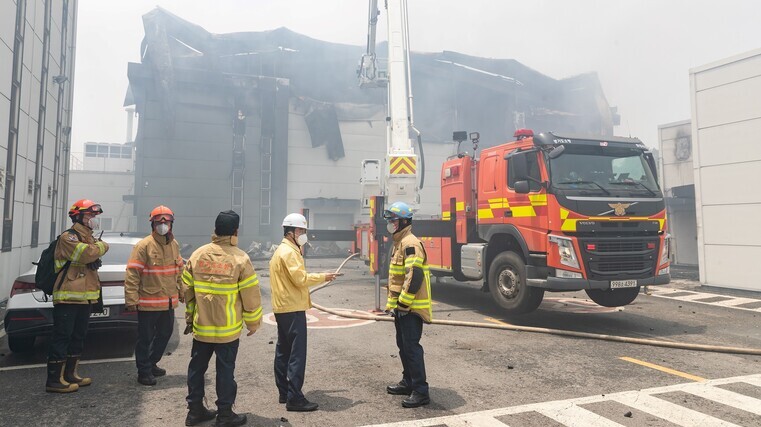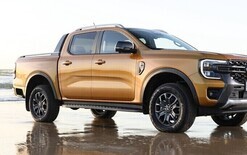Lithium battery factory blaze

A lithium battery factory in South Korea has gone up in flames after multiple batteries exploded.
The incident on June 24 killed 22 workers, most of them Chinese nationals, according to fire officials.
The fire and a series of explosions ripped through the factory run by primary battery manufacturer Aricell in Hwaseong, an industrial area south-west of the capital Seoul.
The victims likely succumbed to extremely toxic gas within seconds of the blaze getting out of control, say officials. It was unclear what caused the explosions and the fire was largely extinguished in about six hours.
Eighteen Chinese workers, two South Koreans and one Laotian were among the deceased. The nationality of the other worker who died has yet to be confirmed, Kim Jin-young, an official at the Hwaseong fire service, told reporters.
The blaze was first reported at 10.31am local time after a series of battery cells exploded inside a warehouse of 35,000 batteries,
Live TV footage showed firefighters spraying the damaged steel and concrete building. Parts of the upper level had collapsed, and large chunks of the building looked like they had been blown out into the street.
Aerial footage showed white smoke clouds billowing from the structure and explosions rolling through the building, reports Reuters.
Kim Jae-ho, fire and disaster prevention professor at Daejeon University, says the fire had probably spread too quickly for workers to escape.
“Battery materials such as nickel are easily flammable,” he adds. “So often, there is not enough time to respond, compared to a fire caused by other materials.”
South Korea’s president, Yoon Suk Yeol, has visited the scene, while Interior Minister Lee Sang-min has called on local authorities to take steps to prevent any hazardous chemicals from contaminating the surrounding area.
Established in 2020, Aricell makes lithium primary batteries for sensors and radio communication devices.
Battery production involves the use of highly toxic materials. “The fact there were so many casualties when this was on only the second floor is because of the toxic materials and not so much because of burns,” says Park Chul-wan, of Seojeong University.
South Korea is home to major producers of lithium-ion batteries that power electric vehicles and to one of the world’s biggest carmakers, Hyundai Motor and its affiliate Kia, which are shifting away from internal combustion-engine cars to EVs.





